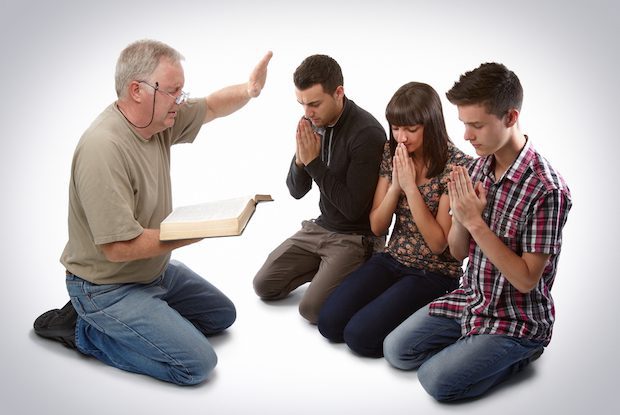The Convert Burnout

I had some thoughts I’d like to share after reading your post on Muslims leaving Islam that would be too long for a comment.
The university I attend has a visible Muslim population, and, besides the occasional hijab (although these are usually only found on Malaysian students), they are practically indistinguishable from their counterparts of European descent in their aspirations, words, and actions. I used to believe that this was just the effect of a modern university education, however after reading your post, I’m wondering if this kind of behavior isn’t passively (or out rightly) encouraged by their parents who themselves were unable to cast off their religious/cultural inheritance as first or second generation immigrants.
As a young adult who’s repeatedly struggled with their faith, I sympathize with these Muslim students as well as their Christian counterparts. I’ve seen first hand how secular modernity has devoured many of my peers in both the Catholic and Orthodox parishes and university groups that I’ve attended or been a part of over the past few years. There’s no easy answer. Today’s convert brimming with faith and what they’re told is the power of the Holy Spirit is tomorrow’s apostate and LGBTQ activist. This is an extreme (but painfully true) example, yet for every case like this I’ve seen countless others slowly fade away as the novelty of their latest charismatic retreat or pilgrimage fades without so much as a whimper. Sometimes they come back, but more often than not these dramatic reversions follow a pattern, what I call “living from retreat to retreat”, that speaks more to a deep crisis of faith than any sort of lasting dedication to God.
I’d like to share my own story, which I believe may be helpful in illustrating this crisis from a unique perspective.
I’m one of the few people who’s left the same faith, Catholicism, more than once during their lifetime. I was raised in a Catholic household by two liberal Catholic, and subsequently divorced, parents (you can probably see where this is going). By the time I was 17 I’d decided that the Catholic Church had little to offer the world beyond the occasional act of social justice, and I declared myself an atheist. It was a personal choice (I never sought to impose my atheism on anyone), yet as long as I was still attending mass I don’t think my parents would have cared either way. Liberal Christianity doesn’t have a leg to stand on when it comes to retaining the young.
Fast-forward to my freshman year of college, and, under the influence of campus ministry, I had a dramatic re-conversion experience that led me back to an active Catholicism. I doubled down hard on my second go around with Rome, quickly outpacing my new friends in knowledge of and dedication to the faith. This was both a blessing and a curse. I had never really engaged with the full breath of the Catholic tradition (my atheism had lacked any sort of intellectual robustness), however I quickly hit a series of brick walls that ultimately led to a far more complete and messy break up with Rome.
First, I realized that many of my peers, even the ones who’d describe themselves as passionately Catholic, really didn’t care about the church and her tradition. Our student group meetings (and masses) had more in common with a Pentecostal revival than anything resembling the Catholicism I was reading about during my personal study of the faith. As someone who was seeking to dedicate his life to the church, this was both infuriating and extremely disheartening. There’s nothing more depressing than realizing you’re the only true believer in a room of true believers.
The second brick wall came as a result of this moral and spiritual exhaustion. I really do believe that there’s such a thing as knowing too much about something (or someone) you love. I don’t remember the exact circumstances, but I remember feeling deep down that this situation, that my entire experience of the church was divorced from her historic tradition, was untenable long before any rational arguments were in place (they would soon be coming). The idyllic Latin Mass parish with a young priest and flourishing congregation just doesn’t exist in this part of the country, and I found myself walking as quickly out of the back door of the Catholic church as I had come in.
Convert (or revert) burnout is a very real risk, and one that’s not often talked about in the context of the young leaving the faith. I would eventually become (and stay) Orthodox, although this has been no less of a struggle. If Christianity is ever going to make a comeback in the West, we need to avoid instilling young converts with a rosy vision of the faith that will leave them unprepared for the very real and human failings they will encounter within the church. If this means trampling on a few narrative sacred cows, so be it. Unintentional lies are just as bad, if not worse, than intentional ones, and have the power to destroy a person’s faith like nothing else.
What a great letter. I need to think about this. Let me ask you readers: can you relate to this? If so, what are the “unintentional lies,” the “rosy visions of the faith” you received or tendered as a convert that left you unprepared for trials to come? Did your faith survive? If so, how? If not, what might have made the difference?
